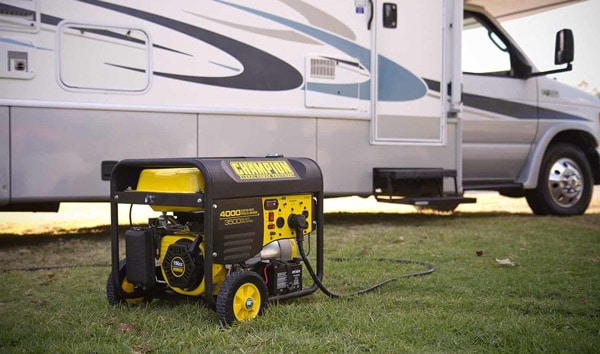There are so many benefits to having an RV – you get to travel and explore different places without having to worry about booking a hotel or finding a place to eat, and you can camp out under the stars without having to lug all your gear around. But in order to make the most of your RV, there are a few key pieces of equipment you need, one of which is an extension cord. RV extension cords are essential for RVs because they allow you to plug into a power source and extend the reach of your electrical appliances. But there are a few things you need to know about RV extension cords before you start using them.
1. Compatibility
Most extension cords are made to be compatible with a variety of different types of RVs however, it is always best to check to make sure that the cord you are purchasing is compatible with your RV, as well as with the type of electrical outlets you will be using. A 108 ft 50 amp rv extension cord, is a good choice for RVs that have 50-amp electrical service. There are a few ways that you can check to see if an extension cord is compatible with your RV. The first way is to check the amperage rating of the cord. The amperage rating will be listed on the extension cord and it should match the amperage rating of your RV. Another way to check compatibility is to look at the end of the extension cord. The end of the extension cord will have either a three-pronged plug or a four-pronged plug. The type of plug you need will depend on the type of RV you have.
2. Storage
Once you have an extension cord that is compatible with your RV, it is important to pay attention to how you store the cord. It is best to keep the cord in a cool, dry place when it is not in use. Additionally, it is important to make sure that the cord is not kinked or tangled, as this can damage the cord. If the cord is kinked or twisted, it is best to use a Cord Wrap to keep the cord organized and tangle-free. There are a few things you need to keep in mind when using an extension cord with your RV. The first thing is that you should never overload the circuit by plugging in too many devices. Additionally, it is important to make sure that the cord is not running across a walkway, as this can pose a trip hazard.
3. Surge Protector
It is also good to invest in a surge protector for your RV. A surge protector will help to protect your RV from power surges that can damage your electrical appliances. The reason that a surge protector is so important for an RV is because RVs are often plugged into a variety of different types of power sources, including generators and shore power. A power surge can easily damage your RV or cause a fire. Surge protectors come in a variety of different sizes and amperage, so it’s important to choose one that is compatible with your RV. Just like with the extension cord, you will want to make sure that the surge protector you choose has an amperage that matches the amperage of your RV.
4. Safety
It is always important to practice safe habits when using electrical appliances in your RV. Some safety tips to keep in mind include:
- Never overload a circuit by plugging in too many devices
- Make sure that cords are not running across walkways where they can pose a trip hazard
- Do not use extension cords with appliances that generate heat, such as space heaters
- Do not use frayed or damaged extension cords
- Make sure that all electrical appliances are turned off and unplugged before you leave your RV
- Never use a generator inside your RV
By following these simple safety tips, you can help to prevent accidents and injuries while using extension cords in your RV.
5. Troubleshooting
If you are having trouble with your RV extension cord, there are a few things you can do to troubleshoot the problem. The first thing you should do is check the condition of the cord to make sure that it is not damaged or frayed. If the cord is damaged, it will need to be replaced. Finally, you should check the circuit breaker to see if it has been tripped. If the circuit breaker has been tripped, you will need to reset it. You can do this simply by flipping the breaker switch to the “off” position and then back to the “on” position. Another common problem that can occur with RV extension cords is that the cord can become overloaded. This can happen if you plug too many devices into the same circuit. If this happens, you will need to unplug some of the devices from the circuit in order to reset it. If you are still having trouble with your RV extension cord, you may need to consult a professional for help.
No matter what type of rig you have, RV extension cords are a necessary piece of equipment. The more you know about RV extension cords, the more enjoyable your RVing experience will be. Be sure to pay attention to how you store and use your extension cord, and always practice safe habits when using electrical appliances in your RV.


